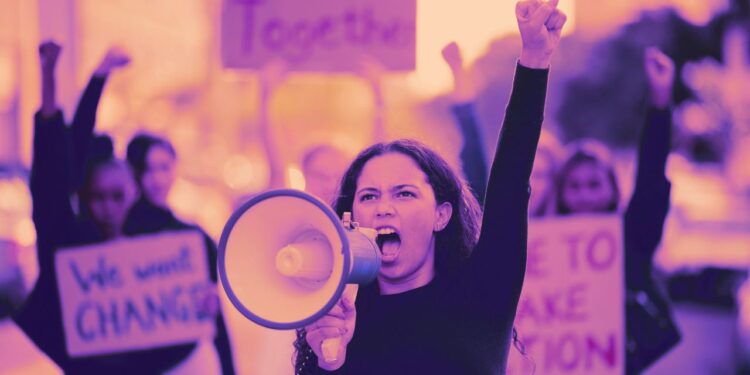Women in Iceland are letting their voices be heard in the global conversation for gender equality and the future of work. As reported by The Associated Press, on Tuesday women across the island, including Prime Minister Katrin Jakobsdóttir, ceased both paid and unpaid work to protest unequal pay and gender-based violence in the workforce.
According to CNN, the strike, known as the “Women’s Day Off” or “Kvennafri” in Icelandic, recorded widespread participation — with schools, libraries, and banks closing for down for the day.
Iceland has consistently been ranked as the world’s most gender-equal country by the World Economic Forum. However, the gender pay gap persists revealing that the pay gap is a challenge that extends beyond national borders. Even in countries that are leading the way in gender equality, there is still work to be done.
Iceland’s workforce is demanding change, not just in terms of equal pay, but also in addressing the underlying issues of gender-based violence and discrimination. The island’s strike is part of a larger global trend of women organizing to demand change in the workforce. From Poland to Spain, women have been making their voices heard on the global stage. These movements are not isolated incidents but are part of the global awareness and demand for gender equality in the workplace.
As workforce participation rates among women reach new heights, the demand for equal treatment and pay will only grow stronger. Employers and governments will need to take proactive steps to address gender-based issues, not just to comply with any updated legal requirements, but also to attract and retain talent in the coming years.
The women’s strike in Iceland serves as a powerful reminder of the work that still needs to be done to achieve gender equality in the workplace. As this trend continues to grow beyond borders, the responsibility will fall upon employers and policymakers to take meaningful action to address the persistent issues of unequal pay and gender-based discrimination.















